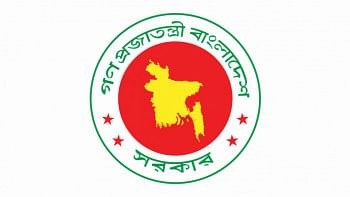Full farm trade liberalisation to lead to more poverty
A full-fledged liberalisation of agricultural trade under the WTO regime will lead to a rise in poverty incidence in Bangladesh's rural and urban areas, according to a Commonwealth study released in Dhaka yesterday.
“Under the complete agricultural liberalisation, the rural and urban poverty incidences increase by 1.71 and 0.65 percentage points respectively,” said MA Razzaque, co-editor of a book 'Global Rice and Agricultural Trade Liberalisation: Poverty and Welfare Implications for South Asia' published by Commonwealth Secretariat and Academic Foundation.
The book was launched at a function in BRAC Inn in Dhaka, which was chaired by Executive Director of the Centre for Policy Dialogue Professor Mustafizur Rahman.
Commonwealth Secretariat's Ambassador Edwin Laurent, also a co-editor of the book, was present at the programme.
Researchers in the book, using global model and database, argued that complete liberalisation of agricultural sector under the WTO framework will result in a decline in global rice output and consequently a hike in its prices, which will put net food importing countries like Bangladesh into a vulnerable situation.
Selim Raihan, a co-researcher on Bangladesh chapter, said the rise in rice prices will have serious impact on Bangladesh's poverty.
Razzaque, also economic adviser to the Commonwealth Secretariat, observed that the maximum global welfare gains would be nearly US$50 billion under the complete liberalisation of trade in farm products.
“But the net food importing countries like Bangladesh are likely to suffer from welfare losses in most cases,” he said, adding: “poorer households such as landless, marginal farmers and urban low education households are likely to face the most disastrous consequences.”
Bangladesh, mainly dependant on imported foods such as rice, will face a welfare losses of US$ 56.5 million under such liberalisation, he said.
However, he said China, Thailand will be the biggest gainers in terms of welfare in Asia.
Razzaque said India and Pakistan will see welfare gains. But Sri Lanka will face significant degree of welfare losses like Bangladesh.
He said the distribution of gains are likely to be highly skewed as there are both losers and gainers in developing countries.
“This reinforces the role and legitimacy of appropriate domestic policies in mitigating the uneven distributional consequences and ensuring food security for the most vulnerable segments of the population,” Razazaque said.
Prof Mustafizur Rahman said the study findings have important policy implications in Bangladesh.
“Ensuring food security and equity is a challenge for the policy makers now,” he said.

 For all latest news, follow The Daily Star's Google News channel.
For all latest news, follow The Daily Star's Google News channel. 



Comments